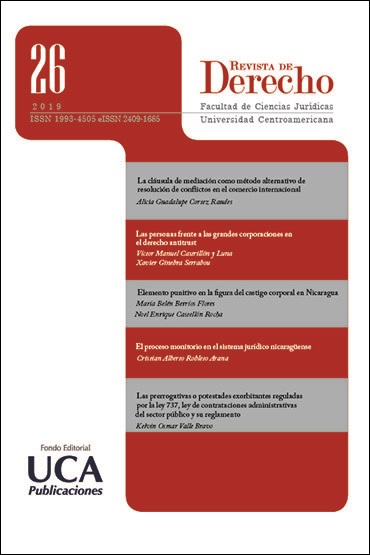Punitive element in the figure of corporal punishment in Nicaragua
DOI:
https://doi.org/10.5377/derecho.v0i26.8947Keywords:
Corporal punishment, deprivation of liberty, torture, penitentiary reform, penitentiary system, stateAbstract
The study of the figure of corporal punishment and with this the particularity of the institutions of power, can’t be pigeonholed in a mere academic disposition or in a necessity imposed by economic, political or authoritarian arguments. It is also his humanistic nature that gives light to the present article, because as a requirement the duty of its study and dissemination, we treat the exercise as aspects of power and the incidence of these in society, all from the perspective of the legal and constitutional principles and the protective condition of Human Rights.
In this article three main aspects of the study of the punitive exercise are exposed: historical development, the reform to the punitive element, use and effects in the current normative and practical Nicaraguan paradigm.
With this purpose, a critical review is made of the proposals that have been submitted to a study on the phenomenon of the punitive event, as well as of the penal system and the Nicaraguan regulations, trying to systematize more than in a theoretical, review and analysis character, a way of providing fundamental contributions that also unveil the failures of a practical and normative system.

